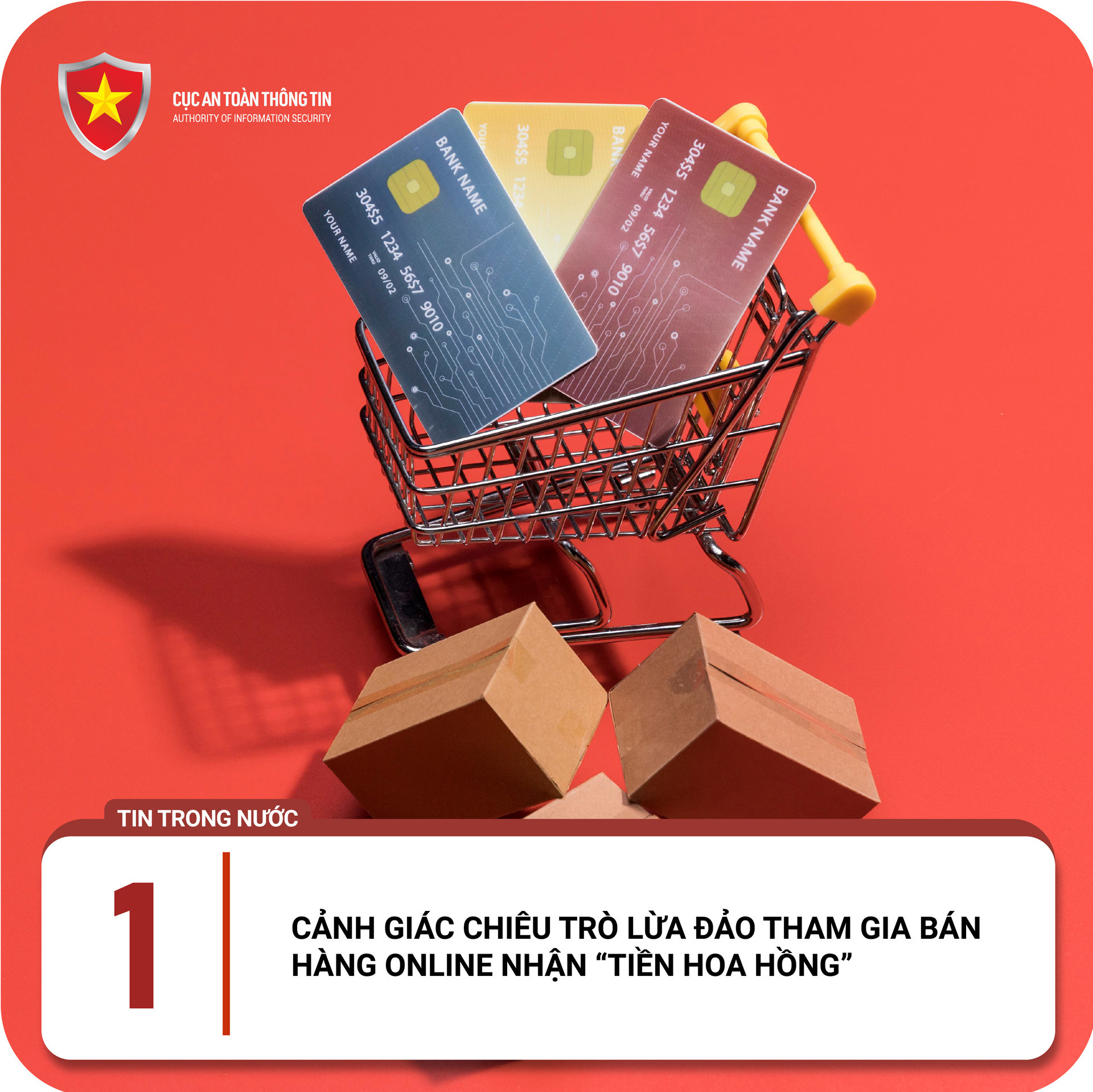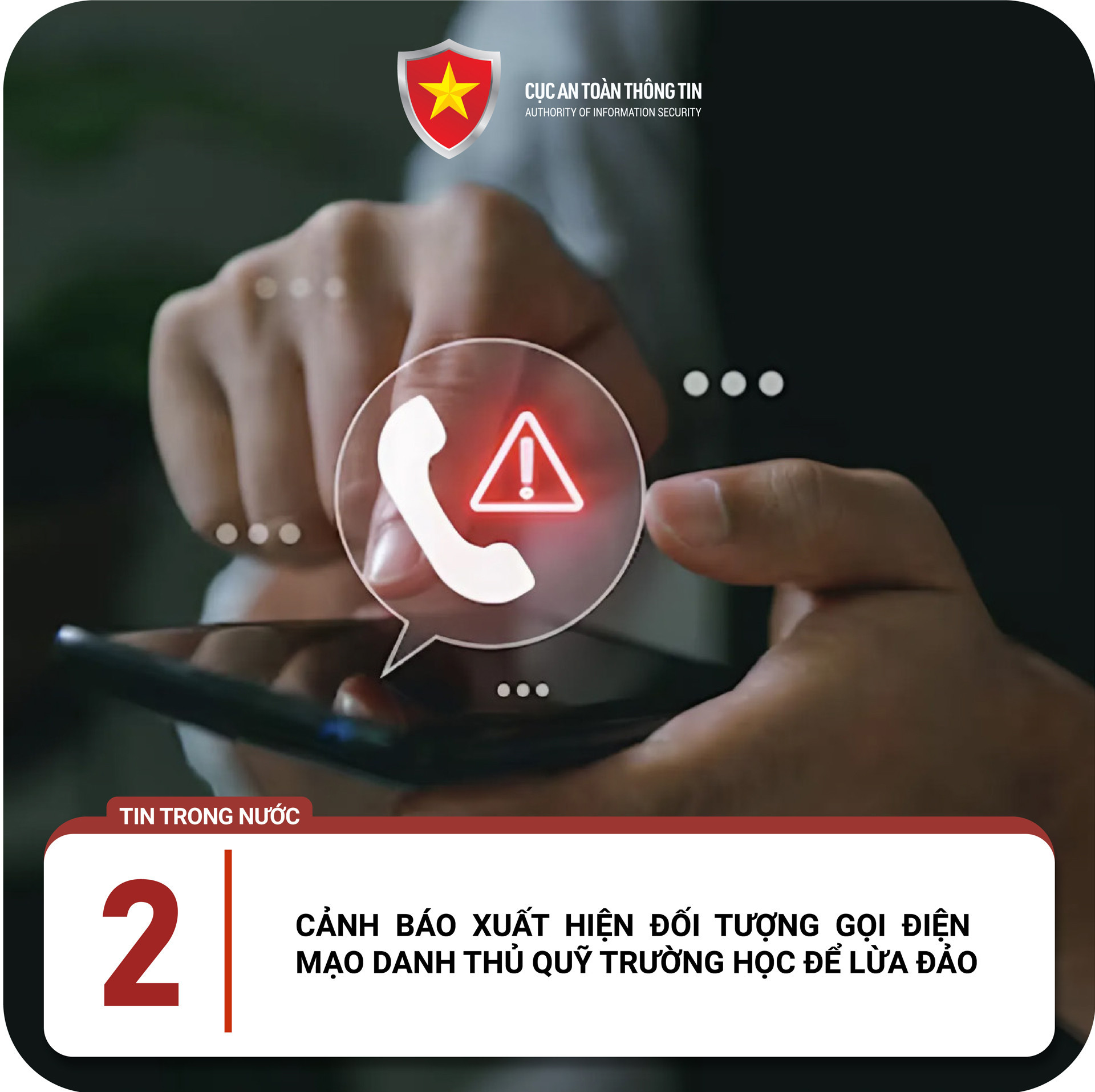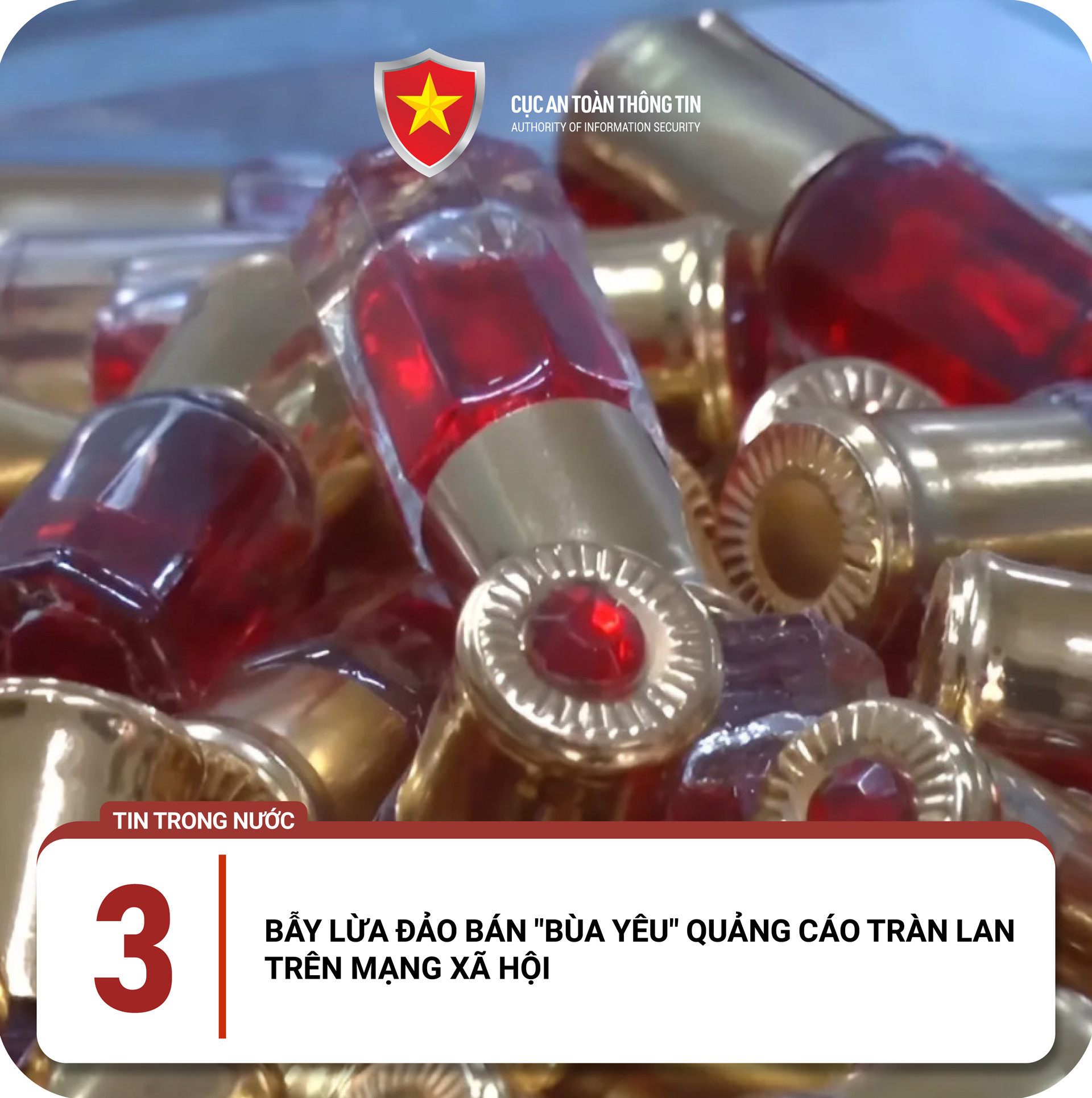The Department of Cybersecurity under the Ministry of Information and Communications has issued warnings about three prevalent online scams occurring in Vietnam from December 2 to 8.
These include deceptive online sales schemes promising commissions, fraudulent "love charm" sales, and impersonations to install fake VNeID applications.
1. Deceptive online sales promising commissions

Scammers lure victims by creating fake social media accounts and posting advertisements inviting them to participate in online sales programs with promises of earning commissions.
Victims are instructed to prepay for products and are promised a refund with an additional commission ranging from 10% to 20% per order. Initially, scammers may build trust by paying small commissions. However, as the victim’s transactions grow larger, the scammers vanish with the money.
A recent case involved a woman in Gia Lai province losing over VND 1.9 billion to an online acquaintance using this tactic. In some variations, scammers also notify victims of winning prizes and persuade them to complete tasks like placing orders to claim rewards.
The Department of Cybersecurity advises the public to avoid participating in high-return online sales schemes, refrain from clicking on unknown links, and avoid providing personal information or transferring money without verified account details.
2. Fake VNeID application scams

In Long An province’s Ben Luc district, scammers impersonated school treasurers, contacting parents to request personal information for creating Level-2 electronic identification accounts.
These scammers exploit public unfamiliarity with electronic identity verification. Victims are tricked into downloading a counterfeit VNeID application that mimics the official interface. Once installed, scammers gain access to high-level device permissions, enabling them to read personal data and one-time passwords (OTPs), which are then used to hijack bank accounts and transfer funds.
The Department urges the public to avoid installing unauthorized applications or providing personal data to unfamiliar callers. Always verify identities and use official communication channels to confirm information.
3. Social media "love charm" scams

In Ha Nam province, a group of scammers exploited superstitious beliefs to sell fake "love charms." These were merely mixtures of dyes and fragrances packaged in small glass bottles. The group promoted their products online through accounts like "Vu Hoang Thien – Thai Lan Spirituality" and "Nguyen Tam Linh Thai Lan," claiming the charms could attract love, bring obedience in relationships, and boost financial luck.
The charms were sold for VND 250,000 to VND 500,000 per package. Many victims, swayed by the promises, made purchases only to find themselves deceived.
Authorities caution against believing in superstitious advertisements online and urge individuals to verify information thoroughly before engaging in transactions. Any signs of fraudulent activity should be reported to the police for timely intervention.
The Department of Cybersecurity emphasizes these preventive measures:
Avoid schemes offering unusually high profits.
Do not download or install applications from unverified sources.
Refrain from sharing personal information with unknown parties.
Report suspected scams to the police immediately for assistance.
The public is encouraged to exercise caution and rely on verified channels to mitigate risks in the digital environment.
Van Anh